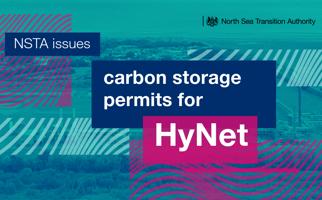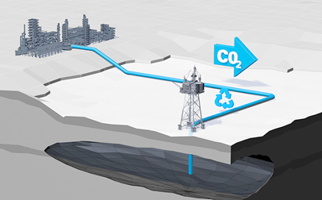
Partnering and co-ordinating infrastructure important for decarbonisation
The integration of offshore energy systems, including oil and gas, renewables, hydrogen and carbon capture and storage, could contribute to deliver approximately 30% of the UK’s total carbon reduction requirements needed to meet the 2050 net zero target.
The Oil and Gas Authority's (OGA) Energy Integration Project report, published on 6 August 2020, in collaboration with Ofgem, The Crown Estate and the Department for Business, Energy and Industrial Strategy (BEIS), also highlights the additional potential for offshore renewables (wind, wave and tidal) to contribute approximately a further 30% towards the UK’s net zero target. This means the UK Continental Shelf (UKCS) could support, in combination with complementary investments in onshore energy infrastructure, around 60% of the UK’s decarbonisation requirements.
There are over 30 energy integration projects already underway across the UKCS, with more than 10 actively being engaged by the OGA alongside this study.
Importantly, the report also concludes that not only is the close co-ordination of these technologies valuable in terms of energy production and cutting greenhouse gases, but that their integration would help technologies become economically more attractive.
The findings of the report include:
- Oil and gas platform electrification is essential to cutting sector production emissions in the near term, and critical to the industry’s social licence to operate. Electrification can abate operational emissions by 2-3MtCO2 p.a. by 2030. This is the equivalent of reducing 20% of today’s production emissions, rising to 40% by 2030.
- Oil and gas capabilities, infrastructure and supply chain are crucial to energy integration, and can potentially support further offshore renewables expansion, including floating windpower.
- Re-using oil and gas reservoirs and infrastructure can accelerate Carbon Capture and Storage (CCS), connecting to onshore net zero hubs and saving 20-30% Capex on specific projects.
- To reach the CCS scale in support of net zero, the UK needs to develop around 20 individual CO2 stores for a total capacity of over 3GtCO2 by 2050 (with large CCS projects featuring multiple stores)
- Blue hydrogen (produced from natural gas) has the potential to decarbonise around30% of the UK natural gas supply by 2050, potentially supporting circa half of CCS expansions in the same timeframe.
- Green hydrogen (from renewables) can support and enable the significant expansion of offshore renewables in the 2030s and beyond, providing an efficient storage and energy transportation solution. Reducing the costs of the technology involved (electrolysis) would be needed to support the faster uptake of this technology.


